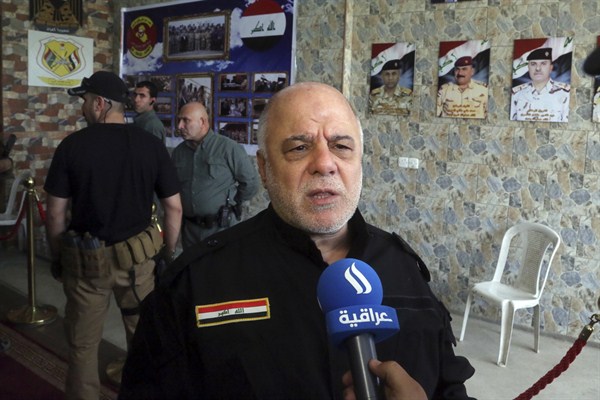The Middle East has a long history of authoritarianism, and the legacy of that history is illustrated in contrasting ways by two key states in the region. Turkey, a flawed but functioning democracy for most of a century, is returning to a more authoritarian model, while Iraq has replaced its strongman with a more normal political leader, provoking nostalgia for the old system. The U.S. has some leverage to push both states to strike the right balance between too little or too much power at the top.
Before the Arab Spring, political scientists examining the durability of authoritarianism in the Middle East tried to understand why states in the region resisted the global evolution to democracy. The 2011 uprisings seemed to have revealed a genuine demand for political change. But in today’s chaotic environment, the yearning for a decisive leader who can provide security and get results appears to have trumped the desire for political openings, at least for now. That’s what led to the reversal of messy democracy in Egypt in 2013. Reports abound that Iraqis, even those who rejoiced in the fall of Saddam Hussein in 2003, now regret the change. It’s reminiscent of the mood in Russia in the initial post-Soviet period, when normal citizens were not prepared for daily life in the absence of top-down control, and where few understood the benefits and costs of living in a more democratic culture.
Turkey and Iraq seem to be on very different trajectories. But they could end up in the same place, reverting to old models of authoritarian leadership. Turkey, despite the remarkable successes of the Justice and Development Party (AKP) of President Recep Tayyip Erdogan and its proven electoral legitimacy, is moving ominously away from established democratic practice. Erdogan, after 11 years as prime minister, became president in 2014, with the goal of changing the constitution to strengthen that office. Some see his ambition as a threat to the democratic character of the country.

